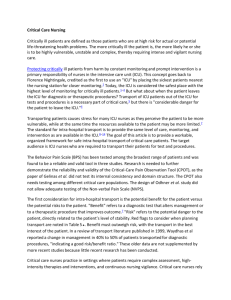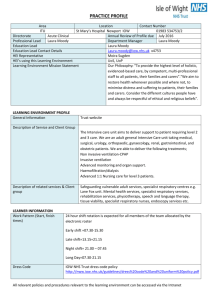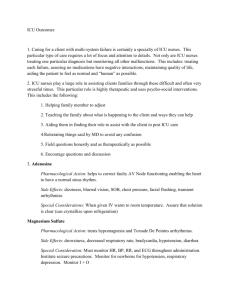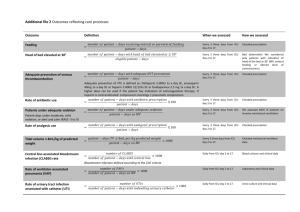ICU Patient Psychological Support: Qualitative Nursing ROL Grid
advertisement
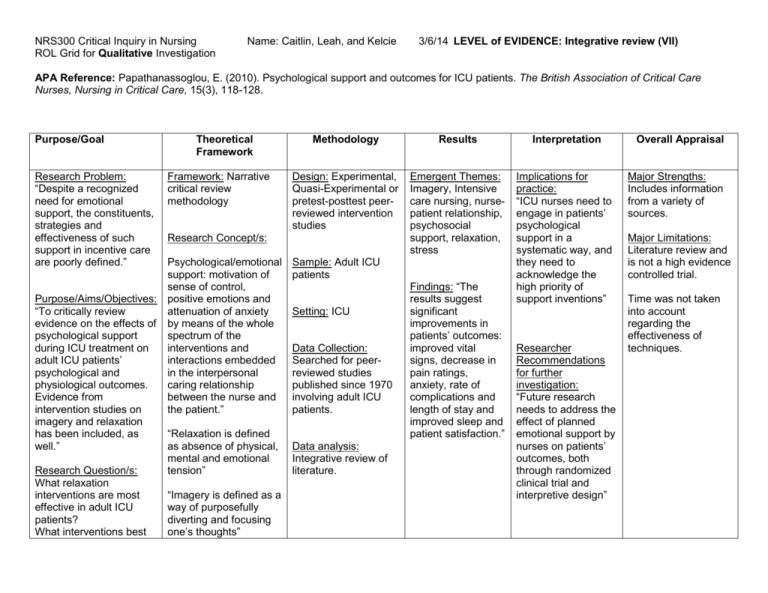
NRS300 Critical Inquiry in Nursing ROL Grid for Qualitative Investigation Name: Caitlin, Leah, and Kelcie 3/6/14 LEVEL of EVIDENCE: Integrative review (VII) APA Reference: Papathanassoglou, E. (2010). Psychological support and outcomes for ICU patients. The British Association of Critical Care Nurses, Nursing in Critical Care, 15(3), 118-128. Purpose/Goal Research Problem: “Despite a recognized need for emotional support, the constituents, strategies and effectiveness of such support in incentive care are poorly defined.” Theoretical Framework Framework: Narrative critical review methodology Methodology Results Interpretation Design: Experimental, Quasi-Experimental or pretest-posttest peerreviewed intervention studies Emergent Themes: Imagery, Intensive care nursing, nursepatient relationship, psychosocial support, relaxation, stress Implications for practice: “ICU nurses need to engage in patients’ psychological support in a systematic way, and they need to acknowledge the high priority of support inventions” Research Concept/s: Psychological/emotional support: motivation of sense of control, Purpose/Aims/Objectives: positive emotions and “To critically review attenuation of anxiety evidence on the effects of by means of the whole psychological support spectrum of the during ICU treatment on interventions and adult ICU patients’ interactions embedded psychological and in the interpersonal physiological outcomes. caring relationship Evidence from between the nurse and intervention studies on the patient.” imagery and relaxation has been included, as “Relaxation is defined well.” as absence of physical, mental and emotional Research Question/s: tension” What relaxation interventions are most “Imagery is defined as a effective in adult ICU way of purposefully patients? diverting and focusing What interventions best one’s thoughts” Sample: Adult ICU patients Setting: ICU Data Collection: Searched for peerreviewed studies published since 1970 involving adult ICU patients. Data analysis: Integrative review of literature. Findings: “The results suggest significant improvements in patients’ outcomes: improved vital signs, decrease in pain ratings, anxiety, rate of complications and length of stay and improved sleep and patient satisfaction.” Researcher Recommendations for further investigation: “Future research needs to address the effect of planned emotional support by nurses on patients’ outcomes, both through randomized clinical trial and interpretive design” Overall Appraisal Major Strengths: Includes information from a variety of sources. Major Limitations: Literature review and is not a high evidence controlled trial. Time was not taken into account regarding the effectiveness of techniques. support psychological and physiological outcomes of adult ICU patients?



